Not just Boracay...
Airbnb vs. Hotels: Which is Better For Muslim Travellers?
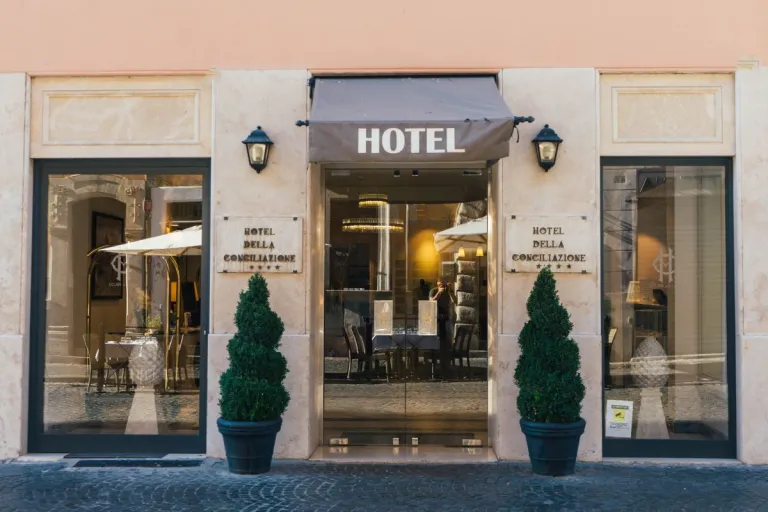
For avid travellers, choosing the right type of accommodation is an essential part of trip planning. While hotels and Airbnb are the most common options, alternatives like hostels and homestays offer unique experiences. Each type of accommodation has its advantages and disadvantages. By understanding these differences, travellers can make informed decisions that suit their preferences and travel needs.
Also read: 10 Hidden Gems in Osaka Perfect For Muslim Travellers
Airbnb vs. Hotels: Advantages
Advantages of Airbnb:
Affordability: Airbnb can be more budget-friendly, especially for long-term stays, although prices are increasingly comparable to hotels.
Variety: A wide range of accommodation types is available, from private rooms to entire homes.
Unique experiences: Many Airbnb listings offer distinctive, personalised environments.
Home-like comfort: Offers amenities like kitchens and living spaces, creating a homely feel.
Local integration: Provides the opportunity to stay within local neighbourhoods, fostering a sense of community.
Muslim-friendly options: Some Airbnb hosts offer accommodations with private spaces suitable for prayer, kitchens for halal food preparation, and proximity to mosques.
Advantages of Hotels:
Enhanced security: Hotels offer robust security features such as 24/7 surveillance, on-site staff, and secure entry systems.
Reliable customer service: Around-the-clock front desk services ensure immediate assistance.
Comprehensive facilities: Amenities often include swimming pools, gyms, spas, and restaurants.
Networking opportunities: Common areas facilitate interactions with other travellers.
Prime locations: Many hotels are centrally located, close to tourist attractions and business districts.
Luxury and comfort: Hotels often provide a more luxurious and professionally managed environment.
Ethical considerations: Choosing hotels helps avoid contributing to housing shortages in local communities, a concern linked to Airbnb in some cities.
Muslim-friendly services: Many hotels, especially in Muslim-majority countries, offer halal-certified food, prayer mats, Qibla direction indicators, and nearby mosques.
Airbnb vs. hotels: Suitable users
Ideal for Airbnb:
Budget-conscious travellers seeking affordable private rooms.
Solo travellers are open to shared accommodations.
Digital nomads need flexible, long-term lodging.
Families or large groups require more space.
Long-term travellers looking for home-like environments.
Muslim travellers seeking privacy for prayer and self-prepared halal meals.
Ideal for Hotels:
Business travellers need professional amenities and services.
Couples seeking romantic getaways with luxury features.
Short-term vacationers prioritise convenience.
Tourists desire a premium, all-inclusive experience.
Muslim travellers who prefer the convenience of halal-certified dining and prayer facilities on-site.
Price comparison
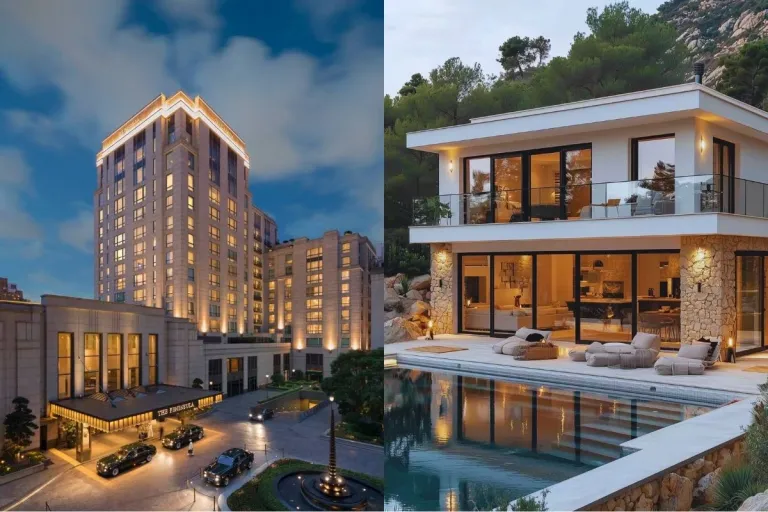 Image credit (L-R): AFAR; NOVASPACE | Pinterest
Image credit (L-R): AFAR; NOVASPACE | Pinterest
Determining which option is cheaper depends on various factors. Budget hotels may offer competitive rates but often lack the space and amenities of similarly priced Airbnb rentals. Airbnb frequently provides better value for long-term stays, despite additional fees like cleaning and service charges. Conversely, hotels may offer perks such as loyalty program discounts and complimentary services, which can offset costs.
Security considerations
 Image credit: Kanpisut via Canva Pro
Image credit: Kanpisut via Canva Pro
Hotels generally surpass Airbnb in terms of security due to established protocols, including CCTV surveillance, on-site security staff, and controlled access points. While Airbnb has implemented safety measures, such as verified IDs and guest reviews, staying in private homes inherently carries more unpredictability. For Muslim travellers, hotels often provide added peace of mind with secure, private spaces for prayer.
Facilities and amenities
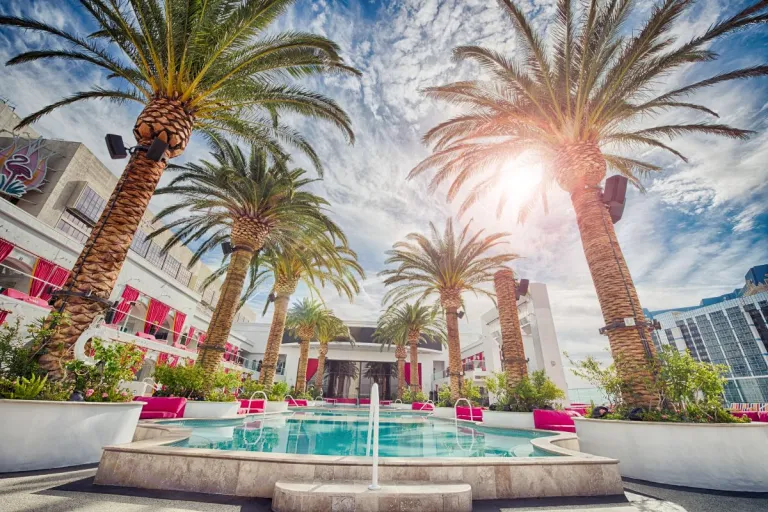 Image credit: Stokpic via Canva Pro
Image credit: Stokpic via Canva Pro
Hotels typically offer extensive facilities, including fitness centres, pools, spas, and on-site dining. Many hotels in Muslim-majority regions provide halal-certified restaurants, prayer rooms, and Qibla direction indicators. Airbnb accommodations vary widely; some may include similar amenities, while others emphasise self-sufficiency with fully equipped kitchens and laundry facilities, beneficial for preparing halal meals. The choice often comes down to personal preferences for convenience versus autonomy.
Privacy considerations
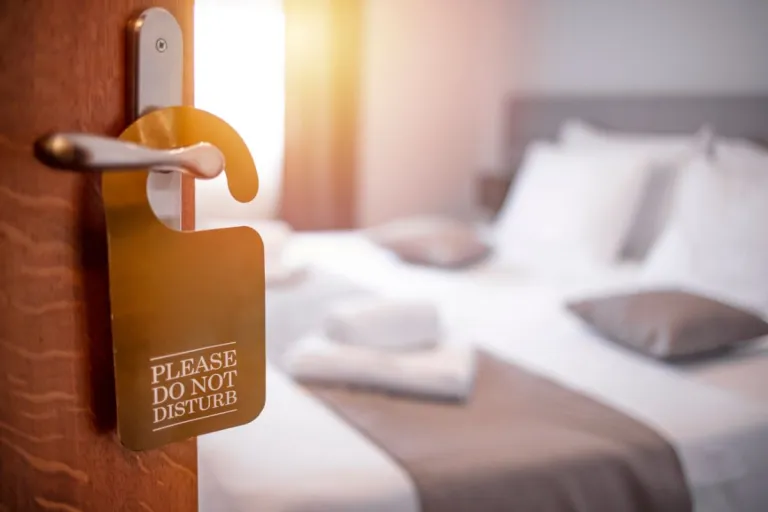 Image credit: dragana991 via Canva Pro
Image credit: dragana991 via Canva Pro
Privacy levels vary depending on the specific booking. Hotels guarantee private rooms, though common areas are shared. Airbnb offers options ranging from private rooms to entire homes, with the latter providing superior privacy compared to most hotel accommodations. This can be particularly advantageous for Muslim travellers who prefer private spaces for prayer and family gatherings.
Overall atmosphere
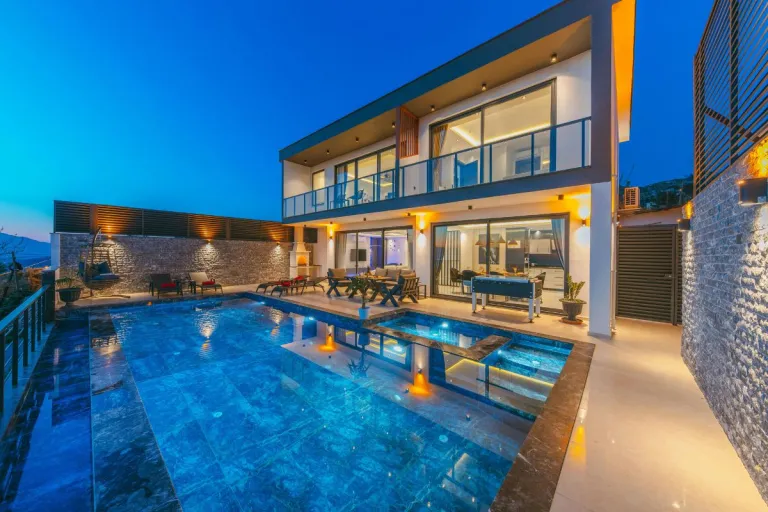 Image credit: Ahmed COTUR via Canva Pro
Image credit: Ahmed COTUR via Canva Pro
Hotels provide a consistent, service-oriented atmosphere with professional management and standardised quality. In contrast, Airbnb accommodations offer diverse, personalised environments that can feel more authentic and homely. The choice between the two depends on whether travellers prioritise comfort and service or a local, residential experience. Muslim travellers may prefer accommodations offering a quiet, private environment conducive to prayer and reflection.
Length of stay considerations
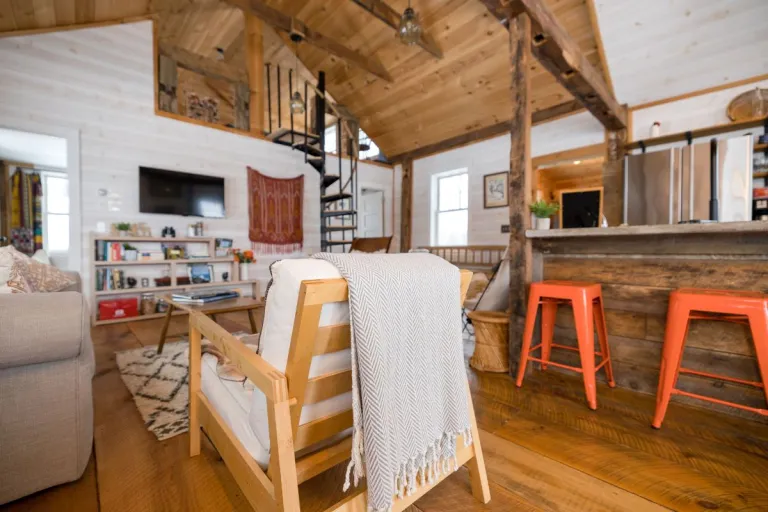 Image credit: Andrea Davis via Canva Pro
Image credit: Andrea Davis via Canva Pro
For extended stays, Airbnb often proves more economical and comfortable due to discounts for long-term bookings and home-like amenities. Hotels cater better to short-term stays, offering convenience, daily housekeeping, and concierge services. While hotel loyalty programs can benefit frequent short-term guests, Airbnb’s pricing structure is typically more favourable for longer durations. For Muslim travellers on extended trips, Airbnb's self-catering options allow for easier adherence to halal dietary practices.
Conclusion
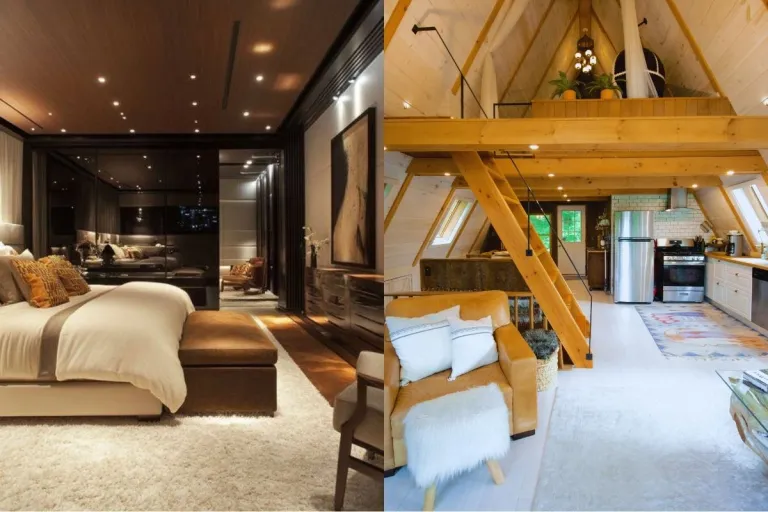 Image credit: (L-R): Serene Home Co | Pinterest and Andrea Davis via Canva Pro
Image credit: (L-R): Serene Home Co | Pinterest and Andrea Davis via Canva Pro
Also read: 15 Muslim-Friendly Things to Do at Changi Airport, Singapore – Halal Eats, Attractions & Relaxation
The choice between Airbnb and hotels depends on the traveller’s priorities. Hotels excel in security, service, and luxury, making them ideal for business trips, romantic getaways, and short vacations. Conversely, Airbnb offers affordability, space, and local immersion, appealing to long-term travellers, families, and budget-conscious adventurers. Muslim travellers can find suitable options in both, with hotels often providing halal-certified services and Airbnbs offering privacy and flexibility for religious practices. Understanding the strengths and limitations of each option enables travellers to select accommodations that best fit their needs and enhance their overall travel experience.
Published at
About Author
Aimi Zulkiflee
Subscribe our Newsletter
Get our weekly tips and travel news!
Recommended Articles
10 Best Halal-Friendly Destinations in The Philippines for Muslim Travellers 10 Best Places for Muslim Travellers to See Tulip Festivals in 2025 Fun Fact: Tulips didn’t actually come from the Netherlands but Türkiye!
Top 10 Popular Muslim-Friendly Destinations to Visit in 2025 Our schedules are packed, buddies!
10 Muslim-Friendly Airbnb in Manila, Philippines Travel more, worry less!
10 Muslim-Friendly Airbnbs in Sapporo, Japan 2025 Choose your mood for staycation now!
Latest Articles
Halal Honeymoon in Sarawak: 10 Romantic Muslim-Friendly Activities Romance, rainforests, and halal adventures await in Sarawak!
5 Muslim-Friendly Theme Parks in Johor Bahru (JB) for Singaporeans to Visit Consider that weekend family trip to JB locked in!
Halal Food Guide: 6 Muslim-Friendly Restaurants at Universal Studios Japan You can savour the halal butter beer here!
MySawasdee Train: A Scenic, Muslim-Friendly Journey From Penang to Hat Yai to Launch in Q3 2025 MySawasdee train is set to launch as regular service In Q3 of 2025!
Why Is The Floor of Masjid al-Haram Always Cool – Even in Scorching Heat? Did you know, Thassos marble is so white that it reflects sunlight easily!

